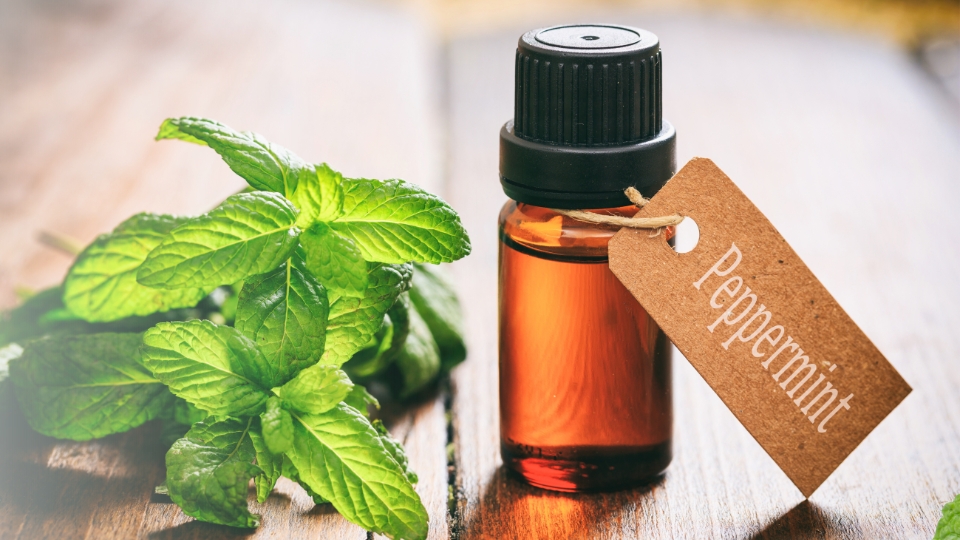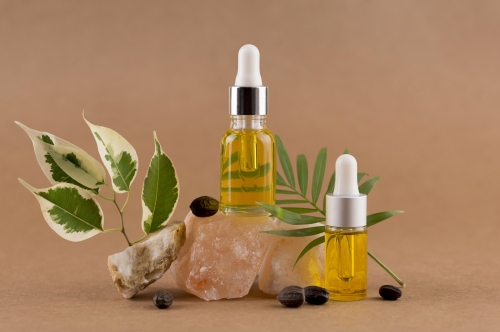Mentha Piperita: Peppermint Health Benefits and Uses

Mentha piperita, commonly known as peppermint, is a herb that has been cherished for centuries due to its invigorating aroma and numerous health benefits. From its culinary uses to its medicinal properties, peppermint has secured a special place in our lives. In this blog, we will delve into the fascinating world of Mentha piperita and discover its various forms and remarkable qualities.
Mentha Piperita Family
Mentha piperita, It is a member of the Lamiaceae family, which is also known as the mint family. The Lamiaceae family is a large and diverse family of flowering plants that includes over 20,000 species. Peppermint is a perennial herb that grows to be about 1-2 feet tall. It has square stems, opposite leaves, and small, blue or purple flowers. Peppermint is native to Europe and Asia, but it is now cultivated in many parts of the world. It is a popular herb for culinary, medicinal, and aromatherapy uses.
The essential oil of peppermint is extracted from the leaves and flowering tops of the plant. It is a clear, colorless to pale yellow liquid with a strong, minty odor. Peppermint essential oil is used in a variety of products, including toothpaste, mouthwash, candy, gum, and breath fresheners. It is also used in aromatherapy to relieve nausea, headaches, and muscle pain.
Peppermint is a safe and effective herb for most people. However, it is important to note that peppermint can interact with certain medications, such as blood thinners and MAO inhibitors. It is also important to avoid using peppermint oil if you have an allergy to mint.
If you are interested in using peppermint, it is important to talk to your doctor or a qualified herbalist first. They can help you determine if peppermint is right for you and can provide guidance on how to use it safely.
Here are some additional facts about peppermint:
- The name "peppermint" comes from the Latin word "piper," which means "pepper." This is because peppermint has a similar flavor to black pepper.
- Peppermint has been used for centuries for its medicinal properties. It was used by the ancient Greeks and Romans to treat a variety of ailments, including stomachaches, headaches, and nausea.
- Peppermint is a popular ingredient in many foods and beverages. It is often used in candy, gum, and breath mints. It is also a common ingredient in toothpaste and mouthwash.
- Peppermint oil is a popular essential oil that is used for a variety of purposes. It is often used to relieve nausea, headaches, and muscle pain. It is also used in aromatherapy to promote relaxation and improve focus.
Peppermint is a versatile herb that has been used for centuries for its medicinal and culinary properties. It is a safe and effective herb for most people, but it is important to talk to your doctor or a qualified herbalist before using i
Health Benefits and Uses of Mentha Piperita
- Oral Health: Peppermint's antiseptic and antibacterial properties make it a valuable ingredient in oral care products. Many toothpaste and mouthwash formulas contain peppermint for its ability to freshen breath, fight bacteria, and reduce gum inflammation.
- Medicinal Marvel: Peppermint has long been revered for its medicinal properties. The menthol compound found in peppermint leaves offers a cooling sensation and has a wide range of therapeutic benefits. Peppermint tea is known to aid digestion, relieve bloating and indigestion, and ease stomach discomfort.
- Aromatic Delight: Peppermint's distinctive scent is uplifting and soothing at the same time. Its refreshing aroma has made it a popular choice for aromatherapy. A few drops of peppermint essential oil in a diffuser can help enhance focus, relieve stress, and clear the mind. Additionally, its pleasant fragrance makes it a favourite choice for scented candles, bath products, and room fresheners.
- Culinary Delights: Peppermint leaves are widely used in culinary creations, adding a burst of freshness to both sweet and savory dishes. From teas and beverages to desserts and sauces, peppermint leaves can be used in various forms..
- Natural Remedies: Peppermint essential oil is a versatile remedy that has been used for centuries to address various ailments. When diluted with a carrier oil, it can be applied topically to soothe muscle pain, headaches, and joint inflammation. Inhalation of peppermint oil can help clear nasal congestion and ease respiratory issues. It is also an effective insect repellent and can be used to deter pests naturally.
Difference Between Peppermint and Spearmint Oil
Peppermint oil is derived from the Mentha piperita plant, while spearmint oil is derived from the Mentha spicata plant. Peppermint oil has a stronger, more intense aroma and flavor with a cooling sensation, while spearmint oil has a sweeter and milder aroma and flavor.
Side Effects of Peppermint or Mentha Piperita
Peppermint, or Mentha piperita, is generally safe for most people, but it can cause side effects in some individuals. These side effects may include heartburn, stomachh discomfort, and allergic reactions such as skin rash. Peppermint can potentially irritate the skin when applied undiluted. It's always advisable to consult with a healthcare professional before using peppermint products, especially if you have underlying health conditions or are taking medications.
Mentha piperita, or peppermint, is undoubtedly a remarkable herb with a wide range of applications. Its enticing aroma, culinary versatility, medicinal benefits, and oral health advantages make it a beloved ingredient in numerous products. Whether you're sipping a cup of refreshing peppermint tea, enjoying the cooling sensation of peppermint oil, or indulging in peppermint-flavored treats, Mentha piperita is sure to add a touch of invigorating delight to your life. Embrace the wonders of peppermint and unlock its true potential!
Check out our products: American Peppermint Oil, DeMentholised Peppermint Oil
Peppermint Uses at Home
Peppermint can be used at home in several ways
- Herbal Tea: Steep dried peppermint leaves in hot water for a refreshing and soothing peppermint tea.
- Aromatherapy: Diffuse peppermint essential oil to create an invigorating and energizing atmosphere.
- Culinary Use: Add fresh or dried peppermint leaves to beverages, desserts, salads, and savory dishes for a minty flavor.
- Natural Air Freshener: Create a DIY air freshener by combining water, peppermint essential oil, and other preferred scents in a spray bottle.
- Homemade Cleaning Products: Add a few drops of peppermint oil to homemade cleaning solutions for a fresh scent and natural disinfecting properties.
- Pest Repellent: Use peppermint oil as a natural pest deterrent by applying it to areas where pests are known to gather.
Frequently Asked Questions
1. What is the primary use of Mentha Piperita?
The primary use of Mentha piperita, or peppermint, is for its medicinal properties. It is commonly used to aid digestion, relieve symptoms of indigestion and bloating, and soothe gastrointestinal issues. Peppermint is also utilized for its aromatic qualities in aromatherapy, providing a refreshing and invigorating scent. Additionally, peppermint is used as a flavoring agent in culinary preparations and is often enjoyed as a herbal tea for its calming effects.
2. Can we use peppermint oil directly on hair?
Yes, peppermint oil can be used directly on hair, but it's important to use it in moderation and with caution. Peppermint oil can provide a cooling and invigorating sensation to the scalp and may promote hair growth. However, it is highly concentrated and can be irritating to the skin if used undiluted. It's best to dilute peppermint oil with a carrier oil, such as coconut oil or jojoba oil, before applying it to the hair and scalp. Conduct a patch test first to check for any adverse reactions and discontinue use if any irritation occurs.
3. What are the side effects of Mentha Piperita?
Peppermint, or Mentha piperita, is generally safe for most people, but it can cause side effects in some individuals. These side effects may include heartburn, stomach discomfort, and allergic reactions such as skin rash.












